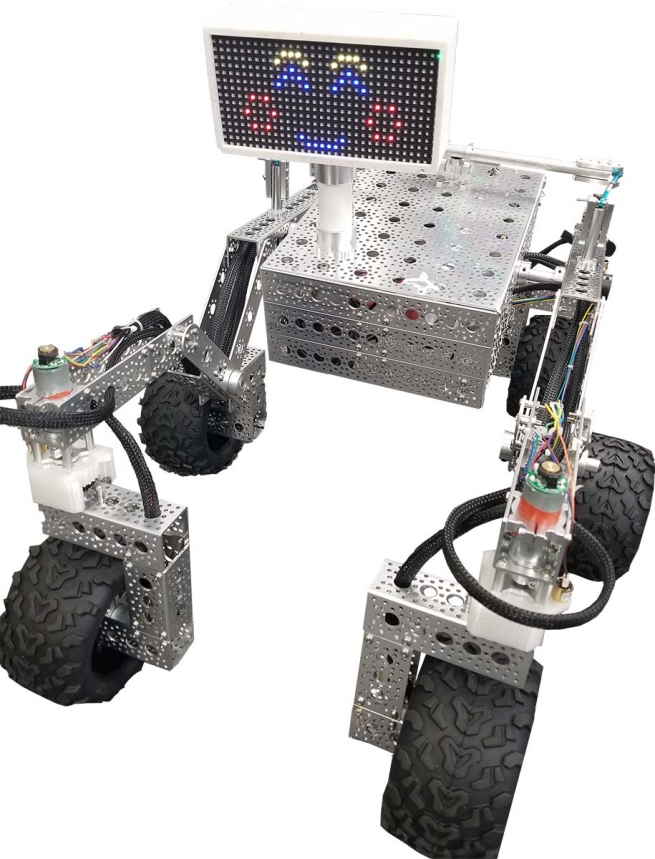BRAZIL: UniSalesian University Center engineering department building a replica of NASA’s Curiosity Rover

(MissionNewswire) UniSalesian University Center, located in Araçatuba in the Campo Grande province of Brazil, has been asked to build a replica of NASA’s Curiosity Rover, which is currently exploring Mars. The invitation came directly from Dr. Jefferson Michaelis, the director of the education center at Kennedy Space Center International Academy.
UniSalesian’s engineering professor, Edval Rodrigues de Viveiros, indicated that Michaelis’s interest was born from UniSalesian’s Science Days, a scientific-cultural event held in September 2019. The event was attended by professionals from NASA and other institutions that deal with space education.
“As part of the Science Days we promoted a competition among state schools in which students had to present a solution that involved technology developed by NASA and that could be adapted to applications used on Earth,” explained Viveiros. “Dr. Michaelis had the opportunity to see the enthusiasm of primary and secondary school students with this type of subject at the event.”
After the event, Michaelis sent an email to the organizing committee of Science Days to make the request to build a replica of the rover. The goal is for the students to develop the replica and unveil it later this year at another science fair, the largest in the country, held at UniSalesian. According to de Viveiros, the next step is to invite public schools from Araçatuba and the region to participate in the project.
“UniSalesian’s focus on international collaboration projects is due to the support of the Rector of the University, Father Luigi Favero, and of the Vice-Rector, Professor André Ornellas,” said Professor Nelson Hitoshi Takiy, coordinator of electrical, mechanical and mechatronics engineering courses. “In this way, the engineering courses have been able to seek inclusion in research organizations and the development of scientific projects outside our borders.”
Salesian missionaries in Brazil provide education, workforce development and social services throughout the country. Missionaries help to meet the basic needs of poor youth, including street children, and provide them with an education and life skills to gain employment, break the cycle of poverty and lead productive lives.
The World Bank estimates that about 28.6 million Brazilians moved out of poverty between 2004 and 2014. But from the start of 2016 to the end of 2017, the World Bank estimates that 2.5 million to 3.6 million fell back below the poverty line earning less than 140 Brazilian reais per month. Economists blame high unemployment, near 13 percent, and cuts to key social welfare programs for challenges in the country.
Issues of income inequality and social exclusion remain the root causes for those in poverty. Inequalities also exist in access to education and educational efficiency. These inequalities are greatest for children and youth who are poor, live in rural areas or who have an incomplete compulsory education. Salesians working with poor youth and their families in Brazil develop programs and provide youth with opportunities for furthering their education and skills.
###
Sources:
ANS Photo (usage permissions and guidelines must be requested from ANS)
ANS – Brazil – UniSALESIANO to coordinate replica NASA Rover Curiosity project
Salesian Missions – Brazil
World Bank – Brazil





